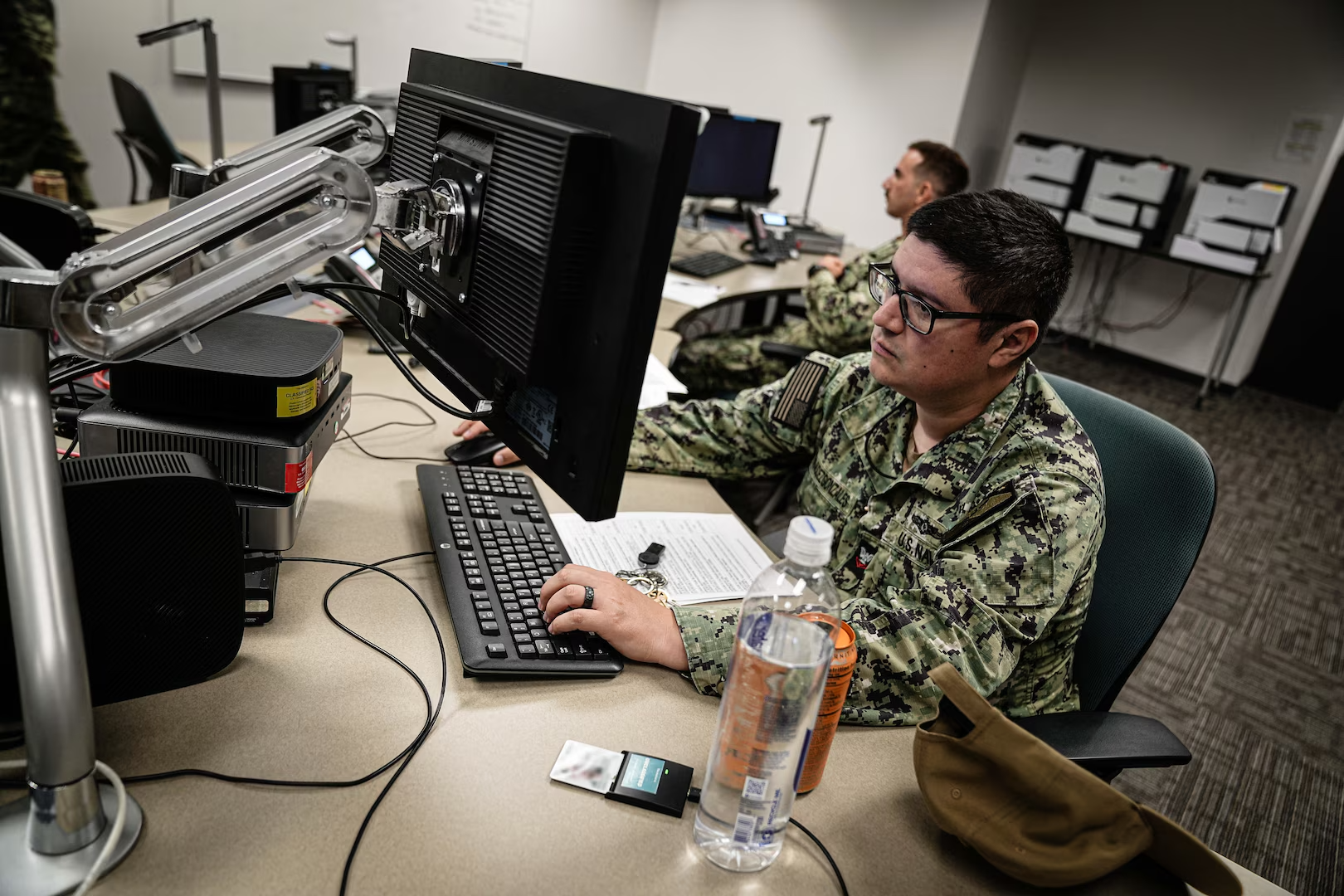Cybersecurity is a strange mix of action movie and workplace training video.
Critical infrastructure, electric vehicles and financial transactions are all vulnerable. Defense includes less easily fooled employees and hiring more skilled experts to counter the bad guys.
That’s the focus of a massive $100 million pledge announced last week by Craig Newmark, the philanthropist best known as the founder of Craigslist.
Big investments in cyber preparedness should be good news for DC, Maryland and Virginia, among the country’s top cyber-rich regions given their proximity to the federal government. Yet the nation’s capital and its bordering states face a major obstacle to further growth: a massive talent shortage.
This spring, Maryland’s economic development-focused investment firm TEDCO released a report showing that while Maryland, DC and Virginia have the largest concentration of cybersecurity jobs in the US, two thirds of the jobs were unfilled.
The DMV region, home to critical national agencies and defense contractors, is often viewed as the epicenter of US cybersecurity efforts. Federal entities like the Department of Defense, National Security Agency and Department of Homeland Security call the region home, contributing to a booming ecosystem of cybersecurity companies and defense contractors. With nearly 90,000 cybersecurity professionals employed in Maryland and DC, the region ranks fourth nationwide for cybersecurity employment, while Virginia ranks third, according to TEDCO’s report.
But the workforce pipeline in the DMV, as well as its expansive tentacles beyond the DC suburbs into Maryland and Virginia, is failing to keep pace with rapidly growing demand.
From December 2023 to January 2024, there were over 6,500 unfilled cybersecurity positions in Maryland and DC alone. Virginia fared even worse, with over 8,500 vacancies in the same period. This makes these collective jurisdictions home to the largest cybersecurity talent gap in the nation, which could stifle growth for both local economies and national security efforts.
A national spotlight on cybersecurity
Newmark’s $100 million pledge — half of which focuses on protecting critical infrastructure like power grids, while the remainder prioritizes educating the public about cybersecurity — brings national attention to this issue.
His donation comes at a time when cyberattacks have become an almost daily occurrence, crippling businesses, governments and critical infrastructure alike. From ransomware attacks like the one that recently hit the Port of Seattle, to the massive outage caused by CrowdStrike’s security platform update in July, vulnerabilities in cybersecurity are being laid bare.
While Newmark’s donation could provide a much-needed boost to nationwide cybersecurity efforts, this region’s workforce crisis calls into question whether it can maintain its status as a cybersecurity leader.
Maryland, DC and Virginia together have 3.42 times the national demand for cyber talent, yet struggle to fill these roles due to bottlenecks in their educational pipeline, the report said.
Despite being seventh and tenth nationwide in producing cyber-aligned graduates at the sub-bachelor’s and bachelor’s degree levels, respectively, the region simply isn’t training enough professionals fast enough. Only 29% of graduates from cyber-aligned degree programs enter “cybersecurity-forward” roles — positions critical to protecting against the very attacks Newmark’s donation seeks to prevent.
The cyber workforce gap’s economic implications
This talent shortage poses not only a national security issue but an economic one as well. The report from TEDCO, which keeps its offices in the cyber industry hub of Columbia, notes that the region's failure to meet the demand for cybersecurity talent could have significant repercussions for the area’s economic development.
With more than 9,700 job openings and a rapidly growing industry, local employers — from tech firms to government contractors — struggle to find the workers they need to meet security challenges. The shortage is especially pronounced in technical roles like cybersecurity engineers, analysts and defense intelligence experts, which are the backbone of any effective cybersecurity operation.
The talent shortage isn’t just a challenge for private companies: It’s also a barrier to public sector growth.
In Maryland and DC, 42% of all cybersecurity job postings require security clearances, adding another layer of complexity to an already strained hiring process. Lengthy clearance procedures and the high demand for workers with TS/SCI clearances are making it increasingly difficult for local governments and government contractors to meet their staffing needs.
While local education systems, including major institutions like the University of Maryland and George Washington University, are producing some talent, a substantial number of cybersecurity graduates leave the region for other opportunities. TEDCO's study found that Maryland and DC rank 24th in retaining local graduates, dropping to 45th when Northern Virginia is included.
Despite these challenges, the TEDCO report offers several strategies to address the region’s workforce gaps. These include expanding apprenticeship and internship programs, prioritizing skills-based hiring over degree requirements and better aligning educational curriculums with industry needs.
This article mentions a report from TEDCO, a Technical.ly client, which supports our independent journalism. That relationship has no impact on this piece.







